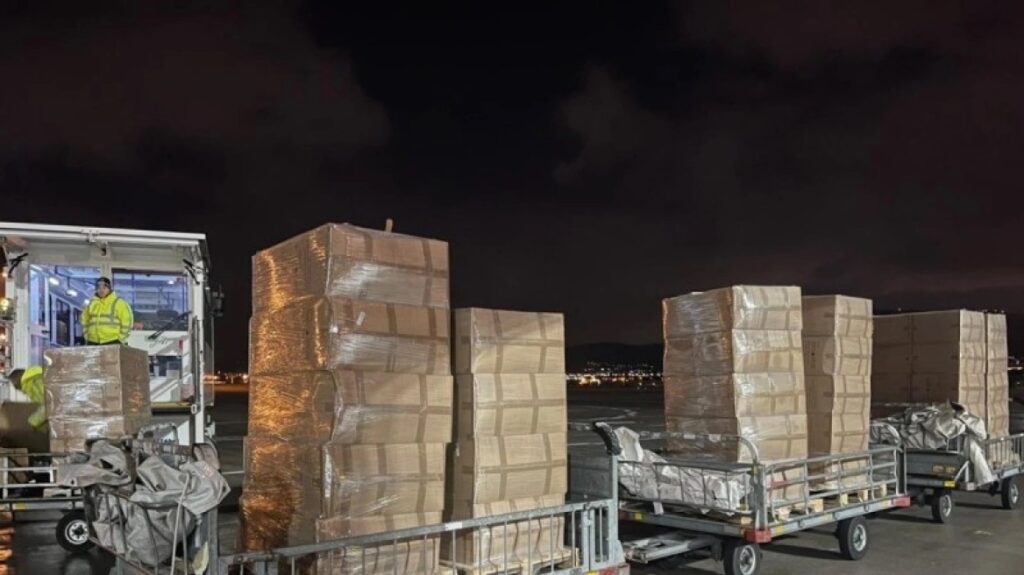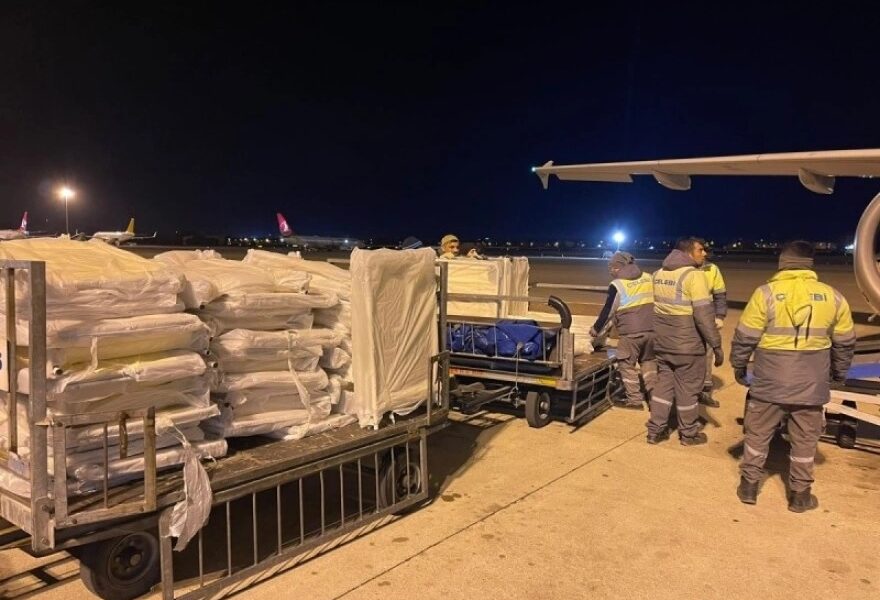The first wave of humanitarian aid from Greece, through the European Civil Protection Mechanism, to support those affected by the earthquake in Syria was delivered late last night to the facilities of the International Organization for Migration in Gaziantep, Turkey.
The Greek humanitarian aid - a total of 26 tons of medicines, medical supplies and basic necessities such as tents, folding beds, blankets and bedding - was airlifted to the Gaziantep hub, from where it will be channeled to northwestern Syria by the International Organization for Migration.

As the Ministry of Climate Crisis and Civil Protection emphasises, in its announcement , "Greece was ready immediately after the devastating earthquake to send humanitarian aid to Syria and one of the first countries that responded to the request for assistance submitted by the Syrian authorities to the European Civil Protection Mechanism."
The Greek ministry remains in constant communication with the EU Mechanism, through which a coordinated and effective provision of assistance by the member states in affected areas is ensured, for the dispatch of additional aid.
The organisation and transfer of Greek humanitarian aid through the European Mechanism for the relief and meeting the needs of those affected in Syria was carried out with the coordination of the Ministry of Climate Crisis and Civil Protection, in collaboration with the Ministry of Health.
It is noted that humanitarian aid to those affected in Syria is sent simultaneously by other agencies in Greece.
Thousands dead, millions displaced: the earthquake fallout in Turkey and Syria
The figures are unfathomable: 47,000 people dead, thousands of others missing, millions homeless. In minutes, two massive earthquakes that rocked Turkey and Syria turned entire cities into mounds of rubble. Two weeks later, the scale of the devastation is still being unearthed.
The true impact will not be fully understood for decades.
Turkey’s death toll has climbed above 41,000, the country’s disaster authority has said. This number is expected to rise further, given that more than 345,000 apartments were destroyed and many people are still unaccounted for. In Syria, already devastated by years of war, authorities have said more than 5,800 people died.
Hans Kluge, the World Health Organization’s Europe director, said relief workers were facing “the worst natural disaster in the region for a century”, adding that 26 million people need assistance across both countries. The WHO launched the largest rescue operation of its kind in the organisation’s 75-year history.
In Turkey alone, an estimated 1 million people are living in tents and temporary shelters, while at least 80,000 injured people are in hospital. There is widespread anger and frustration against the Turkish government. In Syria, up to 5 million people may be homeless, many already internally displaced after fleeing civil war.
What is the longer-term fallout?
The earthquake opened two enormous fissures on Earth’s surface, where the land split by up to seven metres in opposite directions over a span of hundreds of miles.
More than 4,300 aftershocks have hit the disaster zone since the initial earthquake, complicating the rescue effort. On Monday, a 6.4-magnitude earthquake and a second measuring 5.8 hit Turkey’s southern province of Hatay, terrifying those left in the region and killing at least three people.
Imams in mosques around the globe have performed absentee funeral prayers for the dead in Turkey and Syria, many of whom could not receive full burial rites.
The Turkish toll now far exceeds the 31,643 killed in a quake in 1939. And on Saturday, Ankara announced that it had ended rescue efforts in all but two of the hardest-hit provinces, with search and rescue teams still working in the cities of Antakya and Kahramanmaraş.
Hopes of finding more survivors are extremely low, as officials turn to how to repair the devastation.
Meanwhile, shock around the disaster has turned into frustration, with Turkish citizens accusing the government of evading accountability over poor building standards.
READ MORE: State Department: US and Greece united by democratic values and advancing shared goals for peace.


